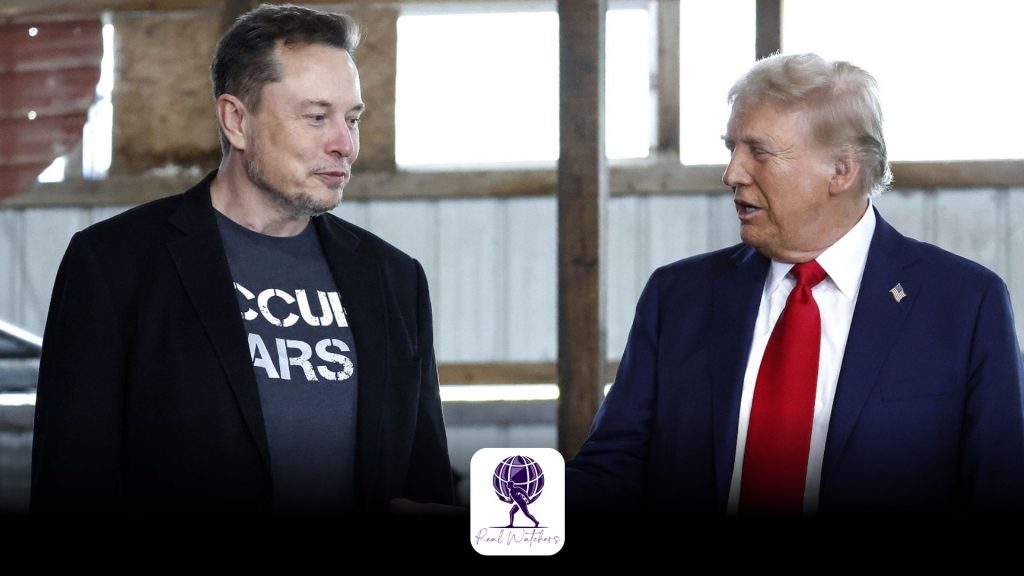During Donald Trump’s initial term, governments globally prepared themselves for the impact of his early morning social media updates. Which policy stands to be overturned, and what derogatory remark might be made? As the sun rises on America’s east coast, diplomats are again feeling a sense of unease reminiscent of four years ago.
In that period, they adopted the approach of taking Trump, as the saying goes, “seriously but not literally.” In the wake of numerous campaign pledges, he ultimately failed to withdraw the United States from NATO or to imprison Hillary Clinton. However, can ministers maintain such a sense of calm during a second attempt?
In a recent morning statement, Trump aimed the UK government’s choice to raise taxes on oil and gas companies operating in the North Sea, citing the move partly aimed at financing renewable energy initiatives.
In a statement on his platform, Truth Social, Trump reacted to news regarding a US oil company’s departure from the region, asserting, “The U.K. is making a very big mistake.” The North Sea should be opened up. Eliminate windmills!
Could this be interpreted as yet another instance of Trump defending a US company, echoing his longstanding support for fossil fuel interests? Could this be indicative of the president-elect’s increased readiness to engage in the domestic affairs of an ally?
Four years later, a significant shift has occurred: Trump is no longer the sole voice at the keyboard. His influential counterpart, Elon Musk, has emerged as an even more prolific figure, leveraging his platform, X, to launch broad attacks on the British government. He has expressed discontent with the government’s management of last summer’s riots, its economic policies, and particularly its response to child abuse scandals.
Elon Musk has unleashed a series of tweets targeting Sir Keir Starmer, personally accusing the prime minister of failing to take adequate action against child grooming gangs during his tenure as director of public prosecutions.
British politicians cannot halt the influx of these posts from across the Atlantic. However, they can manage their response. Throughout Trump’s initial term, government officials and news organizations adopted a more measured approach, taking time to reflect before reacting to or covering the latest digital communications from the White House.
To this point, the Conservatives have opted to align themselves with and amplify Musk’s agenda. Kemi Badenoch, the party leader, emphasized that a comprehensive national inquiry into organized grooming gangs is “long overdue.”
The Conservatives expressed hesitation regarding Musk’s seemingly favorable stance towards the imprisoned far-right activist Stephen Yaxley-Lennon, commonly referred to as Tommy Robinson.
Musk has made multiple posts on X advocating for the release of Yaxley-Lennon, who was incarcerated in October after acknowledging contempt of court for reiterating false allegations against a Syrian refugee.
As the Conservative shadow safeguarding minister, Alicia Kearns expressed that it was “frankly dangerous” for Musk to be “lionizing people like Tommy Robinson.”
The Labour Party is strategically sidestepping a confrontation with one of the wealthiest individuals globally, who may finance a competing political entity. Nigel Farage’s Reform Party has announced that Elon Musk is one of several billionaires expressing interest in contributing financially to their campaigns.
Health Secretary Wes Streeting criticized Musk’s remarks regarding child grooming scandals as “misjudged and certainly misinformed.” However, he extended an invitation to the billionaire to collaborate with the UK government in addressing online child abuse.
Politicians in the UK find themselves among those targeted by Musk’s growing array of unconventional actions. He referred to Chancellor Olaf Scholz of Germany as a “fool” and labeled the nation’s head of state, President Frank-Walter Steinmeier, as “an anti-democratic tyrant.” He referred to Prime Minister Justin Trudeau of Canada as “an insufferable tool” and suggested that “he won’t be in power for much longer.”
The ongoing challenge for politicians in Britain and globally is determining which recent social media outbursts and interventions warrant a response.
In Whitehall, optimism surrounds the appointment of Lord Mandelson as the new British ambassador, with expectations that he may mitigate the tide of personal vitriol emanating across the Atlantic.
Trump’s fondness for the UK and the Royal Family is under scrutiny, particularly following his positive engagement with the Prince of Wales during a meeting in Paris last December, coinciding with the reopening of Notre Dame.
Some officials speculate that the dynamic between Trump and Musk could be too volatile while in office.
Currently, officials are keeping a close watch on their timelines. The revival of US social media diplomacy is underway, with some initiatives directed towards us.








